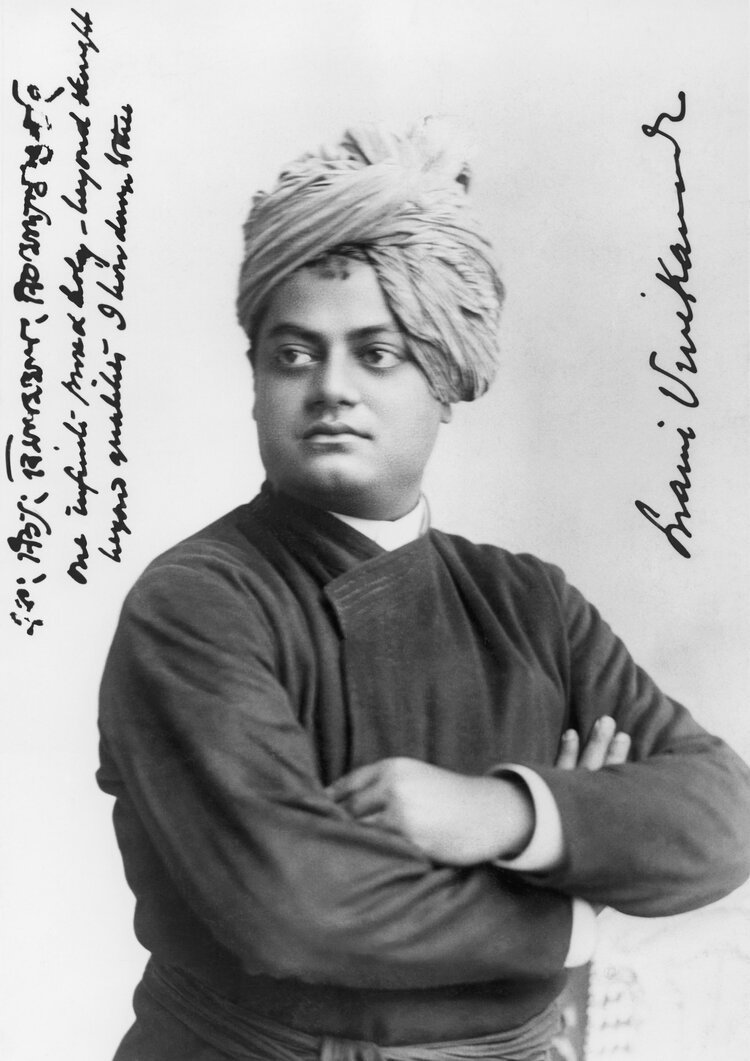Swami Vivekananda belongs to a great lineage of Hindu monks who sought to address the times they lived in, and the ones that are to come, using the vocabulary of their present and past to reassert that the world is a manifestation of God, which nevertheless is in great need for human intervention, generosities, and willfulness. He argued that this way—of thought, action, and compassion—was the way of the Upanishads and Dharma itself.
Read MoreCourtesy: The Vedanta Society || In Bengali and English, Swami Vivekananda writes: “One infinite pure and being—beyond thought, beyond qualities, I bow to thee.” Chicago, 1893.
